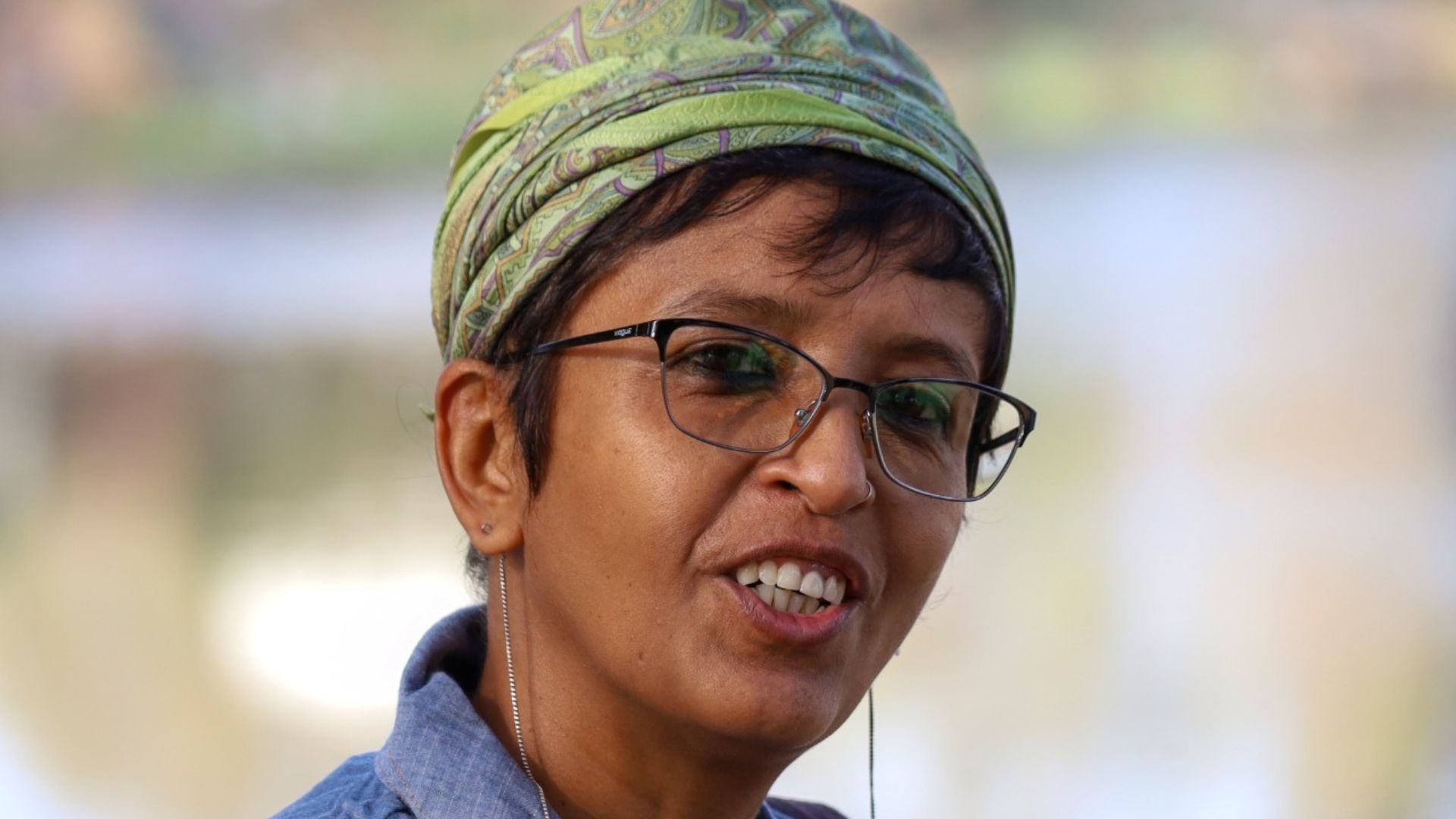Fulbright-Nehru fellow Mansee Bal Bhargava is dedicated to water conservation and environmental activism.
April 2024

Mansee Bal Bhargava is the co-founder of W.for.W Foundation, a citizen’s collective for conversations on water worries, conservation and management. (Photograph courtesy Mansee Bal Bhargava)
Fulbright-Nehru fellow Mansee Bal Bhargava is best known for her activism in helping disturbed ecosystems regain their balance. An entrepreneur, researcher, educator and mentor, Bhargava draws motivation from a deep concern for diminishing water resources and increasing water distress. She is passionate about environmental conservation and is a vocal advocate for sustainability.
Bhargava was associated with the School of Sustainability at Arizona State University during her Fulbright-Nehru Fellowship for Professional and Academic Excellence in 2016-17, where she studied the integration of urban water sources into the planning and management of cities. She has also led several workshops on water management in partnership with the U.S. Consulate General Mumbai.
Excerpts from an interview.
Please share some highlights from your years of conservation work and research.
In my nearly three decades of practicing environmental conservation and management, my major learnings and lessons are centered around “what not to do” in the environmental sector. For example, my long-standing research on urban lake governance and management helped me develop a stand that prioritizes conservation. Saying ‘no’ to a lake development project that does not incorporate conservation is a lifetime commitment. I have developed a module on what not to do with lakes, which is now included in executive training and college curricula across India.
Please tell us about your contributions to water conservation and management in India through research, writing and public speaking.
I aim to bring science and society together to engage in dialogues and deliberations on water-related matters. My contribution to water conservation and management in India is carried out through entrepreneurship, research, education, public speaking and mentorship. I strive to create a common vocabulary for water conversation for diverse stakeholders as conversations using simple language are crucial for effective water conservation.
How can we address the growing challenges of diminishing water resources?
Water literacy is at the core of addressing water matters in terms of conservation and management. Two key factors contribute to this challenge. First, there is a lack of comprehensive water education available, and second, the available education is mostly fragmented and divided, leading to misunderstandings and misinterpretations of the problems as well as the solutions. For instance, even well-intentioned people are sometimes challenged in interlinking water resources and access to water. Some common examples include debates over groundwater extraction and waterfront development.
Could you share some practical steps for individuals and communities to protect the environment?
The first and most crucial step is to enhance environmental education. It enables individuals and communities to actively participate in environmental protection.
As individuals, we can:
As a community, we can:
How has your Fulbright-Nehru fellowship influenced you? What were your key takeaways?
The Fulbright-Nehru fellowship was a turning point for me. During the fellowship year I had the opportunity to reflect, and it underscored the importance of citizen science for ecological restoration.
The fellowship year included talks, conferences and department seminars, which helped to build strong networks. Participating in short courses helped me develop my training programs. Most importantly, the scholarship encouraged me to pursue an integration of entrepreneurship, research and education. Public speaking and mentoring come naturally to me and form the core of my work. In the process, listening and learning seem to be the ultimate reward and goal for myself.
What are your upcoming plans or projects?
I have a few short-term plans personally, like trying to practice what I teach and minimizing my everyday needs. Professionally, I plan to continue my work for water conservation, upscaling water education initiatives, and documenting and disseminating the work of the water workers to engage more people.
Click here to sign up for the free SPAN newsletter: https://bit.ly/SubscribeSPAN
For global warming prevention and sustainibility, all nations needs to enforce EPA regulations strictly.
Very thoughtful and helpful.Crisp and concise
G.Srinivasan
A salutary and edifying piece that evokes concern over the growing water shortage in metro cities like Delhi and Bangalore and provoke our failure and continuing apathy to conserve the precious life support essential elixir. More such serious issues need to be written threadbare to bring into focus the development aspects plaguing the country of continental size like ours.
VG
For global warming prevention and sustainibility, all nations needs to enforce EPA regulations strictly.
AKJAIN
Very thoughtful and helpful.Crisp and concise